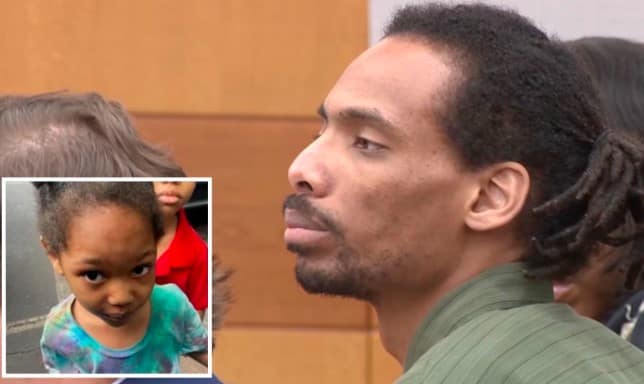Georgia man convicted of murdering his young daughter through starvation and surveillance, receives long prison sentence for one of the most horrific child abuse cases in recent memory.
Verdict Reached in ‘House of Horrors’ Starvation Case
July 11, 2025: A Georgia father, Rodney McWeay, 32, was found guilty of murdering his 4-year-old daughter, Treasure, through prolonged starvation. The girl weighed only 24 pounds at her death—an unmistakable sign of severe neglect.
Cameras Used to Monitor, Control, Enforce
Prosecutors described McWeay’s home as a “house of horrors,” where each child was locked in separate rooms, denied food and water, and monitored around the clock with surveillance cameras aimed at their beds. These tactics prevented escape and communication, reinforcing terror and isolation.
Tragic Conditions and Failed Oversight
Treasure and her two siblings had previously been removed from McWeay’s care due to unsanitary, mold-infested living conditions. McWeay allegedly kidnapped them back from their mother and resumed confinement in his dwelling. Despite reports from neighbors of screaming and distress, child protective services failed to gain access before Treasure died from cardiac arrest brought on by malnutrition.
Sentencing and Legal Consequences
McWeay was convicted on 14 felony charges, including malice murder, felony murder, child cruelty, false imprisonment, and kidnapping. He declined a plea deal and now faces a sentence of multiple life terms, with sentencing scheduled within 30 days.
Why This Case Matters
Extreme deprivation: The victim’s minuscule weight and empty stomach underscore prolonged, intentional starvation.
Control through surveillance: Cameras aimed in bedrooms turned the home into a prison-like environment.
System failures: Disturbing signals—neighbor complaints and prior removals—went unaddressed in time to prevent tragedy.
The conviction of Rodney McWeay in the death of Treasure McWeay reveals chilling depths of child neglect and abuse. The verdict emphasizes the urgent need for more effective oversight, especially in situations where children live under extreme control and isolation, even when warning signs are present.
Published by HOLR Magazine


